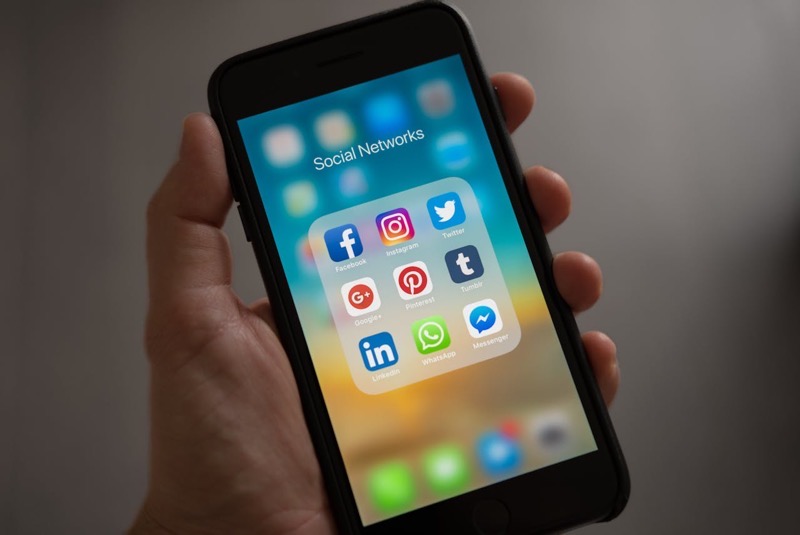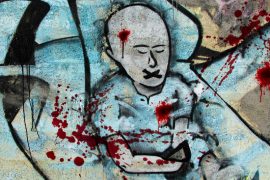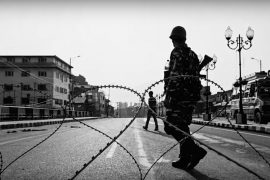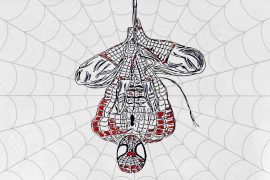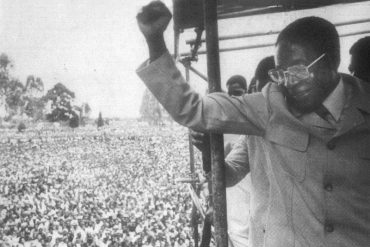Democracy, specifically representative democracy, is consummated through universal adult franchise. Globally, it is dispensed through constitutional morality and secular institutions, with the moral first principles of autonomy and equality forming its hallowed foundation. However, the citadels of democracy always remained ideal in letter and spirit and consequently crumbled under the ponderous weight of ineptitude, inequality, repression, and corruption.
Robert Dahl, the eminent political theorist and Yale University professor, cited ‘enlightened understanding,’ expressed as seamless, multidimensional information availability and flow – for political decision-making of the electorate – as necessary conditions for a robust democracy.
Until the advent of the Internet and the World Wide Web, the free flow of information was often impeded by political censorship of traditional media channels – state-owned or private – that were centralised and hierarchically organised, distributing curated news to the general public. Mostly, political leanings of the ‘dual product’ private mass media players contravened non-partisan reporting.
The news was often intertwined with biased views and propaganda when the ‘techno-optimism’ of the 1990s and early 2000s breathed a whiff of fresh, invigorating air into the production and distribution of information with the explosion of smartphones and social media channels. Social media’s distributed and horizontal structure was perceived as a great enabler of democracy and the harbinger of emancipatory politics, far from the governmental top-down, command-and-control model. When Moldovian protestors, disillusioned by the communists rigging parliamentary elections of 2009, organised themselves on Twitter, described as the ‘Grape Revolution,‘ it also gave birth to the moniker ‘Twitter Revolution.‘
The world witnessed several such social mobilisations through Internet activism during the Iranian elections in 2009 when incumbent president Mahmoud Ahmadinejad was declared victorious amidst widespread irregularities and vote manipulations. Facebook and Twitter were replete with blogs and anti-establishment rhetoric; those virtual worlds were the central gathering sites. Gordon Brown, then UK Prime Minister, showered paeans of praise for the new emancipatory and egalitarian social media for assuming a lynchpin role in democratic sustenance and its preservation. He surmised that if social media was prevalent in 1994, it could have even averted the Rwandan Genocide.
A Facebook post on November 1, 2013, by renowned Afghan-Ukranian journalist and activist Mustafa Nayem, exhorting aggrieved Ukrainian citizens to assemble in Independence Square, should his post receive 1000 likes, to participate in the protests, against the ruling president Viktor Yanukovych’s political expediency, in not signing a treaty with the European Union, owing to covert pressure from Russia. As suggested, people gathered and protested, and this insurrection, known as the Euromaidan uprising, culminated in the government’s resignation and exile of the former president and contributed to the secession of Crimea. Social media was touted as the hero, the nostrum platform for ‘peoples voices’ that were drowned by the iron hand of repressive administrations and oppressive rulers. The open platforms of social media emerged as an alternative entity to the secretive corridors of power, rattling and ousting their invincible messiahs in a torrent of user-generated content, dis-intermediated and free.
Anchon Fung of Harvard Kennedy School and Joshua Cohen of Apple University co-authored a seminal paper titled ‘Democracy and the Digital Public Sphere.‘ In it, they elucidate the ideal parameters of substantive information in buoyant democracies, against which traditional mass media and contemporary social media influences would be assessed. The mass movements and social mobilisations on social media during the first decades of the twenty-first century seemed to resonate well with their guiding concepts of communicative freedom in the public sphere of strong democracies.
Those are expressed in rights and liberties of association, good and equal chances of non-viewpoint discriminatory expression of views and opinions, access to instructive information from reliable sources, presence and availability of a range of competing views on objective values and subjective ideals of justice, fairness, equality and finally the communicative power for concerted and meaningful action that stems from open-ended discussion, deliberation and debate.
The 2016 US Presidential Elections and the Brexit Referendum brought to light the pernicious possibilities of social media as an agency for subverting democracy and fomenting tyranny on free speech, choices and expressions. Facebook and Twitter were used as tools for political manipulation through micro-targeting a section of the electorate. In the run-up to the 2016 US elections, Cambridge Analytica, a British political consulting firm, was implicated for its alleged role in harvesting 50 million Facebook profiles in one of the biggest data breaches of the tech giant.
Big Data pertinent to the target Facebook users’ social media activity of likes, shares, comments, group memberships, installed applications, tags in photos and posts were combined with the psychographic profile (small data) of the same users and their friends (in violation of Facebook’s platform policy) to create a smart database. The psychographic profile was constructed using a Big Five personality questionnaire and OCEAN scores, which were collected through an app called thisisyourdigitallife, built by a Cambridge University academic, Alexandr Kogan, with strong ties to the Kremlin.
Cambridge Analytica divided the US into 32 profiles based on the meticulously curated messages sent over the social media handles to influence the voters, intended to distort electoral outcomes. A spate of disinformation against the Democratic candidate Hilary Clinton was disseminated through sponsored news-feed-style ads on Facebook timelines that could only be seen by users with specific profiles. Several fake videos of Hilary Clinton were circulated on Facebook feeds of African-Americans in which Hilary refers to them as predators.
The Trump campaign allegedly targeted 3.5 million blacks to deter them from voting in battleground states. According to estimates by the Pew Research Center, black voter turnout fell to 59.6 per cent in 2016 from 66.6 per cent in the 2012 US elections. Trump narrowly won the 16 swing states after Democratic voter turnout collapsed. During the Brexit referendum, the Vote Leave campaigners were accused of spreading disinformation through social media on the high costs of European Union membership for Britain and the immigration crisis it entailed.
US Intelligence agencies have probed into the alleged Russian role in meddling with the 2016 US elections and have empirically concluded that Russians did hack voter databases and state websites in at least 21 states before election day and stole hundreds of thousands of voters’ personal information. They also released malicious propaganda on various social media sites, including Facebook, Twitter, YouTube and Instagram, set up several meetings with the Trump campaign associates, and, according to a Time magazine report, even floated the proposition of a Trump Tower in Moscow.
A Senate Intelligence Committee Report stated the intrusion of the Russian Military Intelligence Wing, GRU, hacking emails of the staff of Hilary Clinton, including campaign chairman John Podesta. The hackers subsequently used the content of hacked emails to create a fake online persona called Guccifer 2.0 and shared the stolen emails with WikiLeaks. These covert manoeuvres were meant to distract Hilary Clinton’s core election campaign message to the American public.
A 2022 report published by Amnesty International categorically denounced Facebook and its parent Meta – in its unbridled quest for profits – for offering their platform for spreading hate speech against Rohingya Muslims in Myanmar. While more than 10,000 Rohingya Muslims were tortured, raped and butchered by the Myanmar military and over 700,000 were forced to exile from their majority Rakhine State in 2017, Facebook was profiting from the ‘echo chambers‘ and information ‘filter-bubbles’ created by their hate-spiralling algorithms.
In the months leading up to the military crackdown, Facebook was flooded with anti-Rohingya hate campaigns posted by both state actors within military and non-state actors of radical Buddhist nationalist groups inciting violence and bloodshed against a purported Muslim takeover of the nation. The platform’s culpability in one of the most brutal ethnic cleansing projects in recent history is explicit.
Another colossal failure of online content moderation from Facebook incited the ongoing ethnic violence and civil unrest in Ethiopia. Meta is hit with a lawsuit for its negligence and failure to filter and remove inflammatory content that explicitly contributed to the killings of ethnic minorities in the country, especially in the northern Tygray Region.
Facebook’s engagement algorithms amplified and ‘supercharged’ the proliferation and dissemination of malicious rhetoric despite warnings of clear and present danger from its partners in Kenya, who had solicited a contingency action from Facebook to dissipate the tension. In 2021, a Facebook whistleblower, Frances Haugen, unleashed a scathing criticism of its moral bankruptcy and being instrumental in fanning ethnic violence.
The malfeasance of social media as tools of political manipulation and control has its genesis in the 2000 US presidential election between George. W. Bush. Jr. and Al Gore. Philip.N. Howard, the social scientist at Oxford Internet Institute, who was part of Bush and Gore campaigns, has expounded in his book New Media Campaigns and The Managed Citizen about how 25 odd technology designers have used the Internet in violation of privacy laws in the United States, to manoeuvre public opinion. A year later, they started travelling across the border to Canada and then across the pond to the UK, Germany, Israel and Australia to conduct crash courses on exploiting the seamless possibilities of the new digital media for political outcomes. This eclectic bunch have even offered their expertise to revisionist regimes of Russia and China and also to Saudi Arabia, where executive turnover is a near impossibility.
Computational propaganda has taken the vicious form of automated bots used to spread fake news, misinformation, disinformation and malinformation, (MDM) triad, as evidenced during the US Presidential Elections of 2016. Twitter was the medium of choice for effecting such automated malicious content against Hilary Clinton.
Indubitably, there were always human agents curating that spurious ethnographic content behind the scenes, which was validated when Donald Trump won the election; these bots were automatically shut down, as if by an invisible hand. The coders behind these Bots were probably fully convinced they were engaged in acts of patriotism.
Evidence of automated Bots disseminating disinformation at scale was detected during the Brexit referendum, the debates on the UN migration pact in Germany, the 2017 German elections, the 2017 Catalan independence referendum, the 2017 French presidential elections, the 2018 Swedish elections and inundating Twitter during the 2019 Australian federal elections.
The explosive growth of Artificial Intelligence (AI), Machine Learning (ML) and Large Language Models (LLM) developed by research organisations like Open AI have engendered a new threat in creating deep fake videos, texts and images using generative AI tools like GPT-3. The 2024 Indian general elections are marked by the onslaught of deep fake content.
Deceased DMK leader, the stalwart Muthuvel Karunanidhi, was suddenly resurrected using deep fake technology to enthuse party cadres; Bollywood matinee icons Ranveer Singh and Aamir Khan’s fake videos emerged and went viral for criticising the incumbent government; India’s opposition leader Rahul Gandhi’s voice was cloned using AI to deliver a speech that he has resigned from Congress, and Modi was shown as a tech-savvy Prime Minister crooning to popular Tamil songs, vying for a foothold in the southern state, that has eluded the ruling fundamentalist and bigoted NDA alliance.
In Moldova, the ‘pro-Western president’ Maia Sandu’s deep fake videos of her resignation are being circulated, soliciting the masses to support a pro-Putin party during local elections. On the 2024 Taiwan presidential election day, a pro-Chinese Communist Party affiliate posted an AI-generated video of a prominent political anti-communist leader, Foxconn owner Terry Gou – who incidentally dropped out of the contest – extending his support to the pro-communist candidate. After verification of the fake video, YouTube removed it from its platform.
Social media platforms thrive on attention-capture business models; the more a user spends time on the platform, the more profitable it is. The users are condemned to ‘doom-scroll‘ their lives on social media, in which businesses capitalise using big data analytics and predictive modelling software to serve advertisement content, mostly lookalike, to reap profits.
The Harvard University professor and social psychologist Shoshana Zuboff coined this phenomenon as ‘surveillance capitalism.‘ Prolonged, obsessive engagement on social media platforms could cause political disengagement, regressing into a frivolous life centred on infotainment, sensationalism and tabloidisation.
YouTube’s recommendation algorithm determines what people watch for more than 70 per cent of the time, equivalent to 700 million hours or 1000 lifetimes. Social media ratifies the ‘novelty hypothesis’ theory, which states that human beings have a penchant for sustained novelty, like the modern mainstream news media, where ‘breaking news’ is a product category! If users leave the platform, they will be chased and enticed back through visual notifications and sound alerts.
Political surveillance on social media platforms targeting individuals and groups that post content critical of government policies and agendas is growing exponentially. The NDA government in India is a classic case of administrative paranoia, tightening and suppressing the democratic values of individual freedom of speech and expression. Several amendments to the IT Act were enacted, and the 2021 Intermediary Guidelines and Digital Media Ethics Code accords extensive powers to the state to withhold legitimate information from the masses and eavesdrop on personal content on social media.
Facebook’s 2019 ‘Transparency Report‘ mentioned that India ranks second to the US in requesting user data, which the tech company has complied with (or was forced to) in more than 53 per cent of the cases. Satirists, students and journalists have been detained under the vaguely stated offences of being a threat to national sovereignty, integrity and security.
This type of repression is quite rampant in modern India. Forty government departments have access to an advanced social media surveillance tool called Advanced Application for Social Media Analytics (AASMA) that snoops on online personal content, tracking users’ location and reporting it.
The NDA government was embroiled in a scandal, the Pegasus Project, by snooping into the mobile phones – using Pegasus Spyware developed by Israeli cyber-intelligence company NSO Group – of targeted opposition leaders, ministers, political strategists, religious leaders, journalists, activists and heads of secular institutions like the Election Commission (EC) and Central Bureau of Investigations (CBI), in one of the most ignominious flouting of democratic principles and a flagrant attack on the security and sovereignty of the nation.
Several criminal litigations were filed in Mexico and France after discovering that spyware was the malefactor in malicious cyber activity and gross human rights violations.
Pervasive political surveillance on social media and gratuitous witch-hunts invariably lead to a phenomenon called the ‘chilling effects of surveillance,‘ which deter the political participation of the masses, weaken the opposition and subvert the democratic process. It creates a deferential society, subdued into a ‘spiral of silence‘ at the grim prospect of state retaliation and social isolation. Indian political landscape in the last decade is fraught with ‘McCarthyism‘ style repression, which could further retrograde into a ‘Kafkaesque’ jury and trial. Yet, social media will always be indifferent to democracy.
Social media breaking into the global community was perceived as an alternative media choice to revive declining democracy in the world. It has spurred and facilitated transnational mobilisations like #MeToo, #BlackLivesMatter and the Arab Spring, and national ones in Occupy Wall Street and Indignados (15-M) instilled a renewed sense of global optimism for democratic polity and egalitarian avenues for free speech and expression. But social media has belied that trust and has degenerated into behavioural modification machines to encourage addiction for self-validation – both teenagers and adults alike- by exploiting human cognitive biases.
Monopolistic social media and networking platforms like Facebook moderate and regulate individual free speech and expression by blocking and removing content, quarantining topics, curbing recommendations, suspending accounts and ranking comments. These regulatory tools are clustered under the generic title of ‘community standards,’ when the tech behemoth has no qualms in sanctimoniously permitting bigotry and hate content by fissiparous forces on their ‘hypnotic’ platform.
They favour disinformation over factual content because it breeds protracted user engagement, higher advertisement revenue, allegedly selling data to corporations and reaping exorbitant profits. Social media empowers emotion, downgrades deliberation and, through the click-bait business model, keeps every unsuspecting user on autopilot. ‘Selective exposure bias’ on these platforms limits diversity of opinion and eclectic worldviews, thus weakening the intellect.
In highly regulatory regimes like China, the incumbent single-party administration joined hands with social media companies to develop ‘social credit,‘ supplementing financial creditworthiness. It is both a scoring and compliance management system to nudge citizens for enhanced trustworthiness, which will be rewarded with social privileges. It resembles an Orwellian world.
In the contemporary world, trustworthiness is tantamount to subservience. The power of social media to limit the growing menace of authoritarianism, demagoguery, populism and illiberalism is dubious, but on the contrary, it seems to exacerbate it. According to Larry Diamond, the Stanford University professor, sociologist and an eminent expert on democracy, the ‘zeitgeist‘ – of global political reality – of the last decade is deepening democratic recession.
The pervasive democratic decline in the world is corroborated by the Washington-based non-profit organisation and think-tank Freedom House, which also links it to the digital despotism of repressive regimes by abusing unregulated spaces on social media.
It is largely possible that in a dystopian future, by virtue of the unfettered power of social media companies, democracies – if they would have survived – will be dictated by these leviathans that will have subscribers and user bases than the followers of the world’s largest religions.
-30-
Copyright©Madras Courier, All Rights Reserved. You may share using our article tools. Please don't cut articles from madrascourier.com and redistribute by email, post to the web, mobile phone or social media.Please send in your feed back and comments to [email protected]

